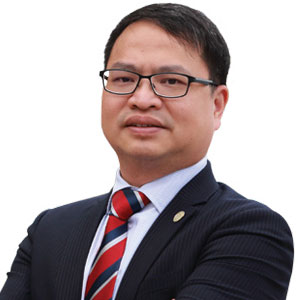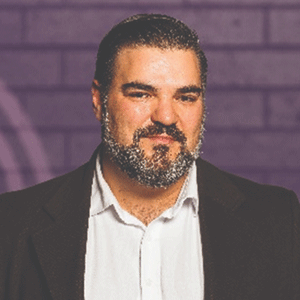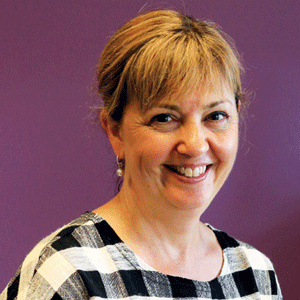THANK YOU FOR SUBSCRIBING

Future-Focused Education
Katie Mayne, Director of Learning & Innovation at Nishimachi International School


Katie Mayne, Director of Learning & Innovation at Nishimachi International School
Katie Mayne is the Director of Learning and Innovation at Nishimachi International School in Tokyo. With leadership experience across international schools in Japan, Malaysia, New Zealand, South Africa, and England, she drives future-focused, inquiry-based learning. Passionate about curriculum design, student agency, and fostering collaboration, Katie is dedicated to creating innovative learning opportunities that build essential 21st-century skills.
Through this article, Katie Mayne, explores the urgent need for a shift in educational practices to better prepare students for the rapidly changing future. Mayne emphasizes the importance of moving away from traditional content-driven curricula towards inquiry-based learning that prioritizes the development of transferable skills, such as critical thinking, adaptability and emotional intelligence. She argues that educators must embrace a three-dimensional approach to teaching, where students are active participants in their learning, engaging in deeper conceptual understanding rather than mere memorization.
For students to truly understand and internalize learning, they must not be passive recipients of knowledge but active contributors to the learning process.
The World Economic Forum’s Future of Jobs 2023 report highlights the priority skill increasingly in demand in the rapidly changing workplace. These skills include analytical and creative thinking, self-awareness, lifelong learning, technological literacy and resilience. Adaptability, curiosity, and emotional intelligence are becoming more widely acknowledged and are prominent transferable skills. Surprisingly, the cultivation of essential skills for effective communication, collaboration and leadership, such as critical thinking, problem analysis and innovation, can often be overlooked in traditional education settings, where the emphasis can tend to lean more in favor of academic attainment. As the Kindergarten students of today will graduate high school in 2042, educational leaders must prioritize integrating transferable skills into curricula to better prepare students for future workplaces.
Concepts Over Content
A traditional content-driven curriculum focuses on acquiring, memorising and regurgitating knowledge and facts, while an alternative three-dimensional approach prioritizes deeper conceptual understanding.
As Lynn Erickson explains, “Two-dimensional curriculum models focus on facts and skills with goals of content coverage and memorization. Three-dimensional models emphasize concepts, principles and generalizations, using facts and skills as tools for deeper understanding and facilitate conceptual transfer across time, cultures and situations.
” Anderson and Krathwohl describe further, “By separating factual knowledge from conceptual knowledge, we highlight the need for educators to teach for deep understanding, not just for remembering isolated and small bits of factual knowledge.” Conceptual learning drives impactful education by “facilitating synergistic thinking, requiring intellectual processing, promoting intercultural understanding and developing brain schemata as well as providing opportunities for personal meaning-making.” As Mlodinow notes, these higher-order thinking skills equip us for “an astonishing breadth of conceptual analysis.” such as those required in the workplaces of tomorrow.
Active Participants in Learning
For students to truly understand and internalize learning, they must not be passive recipients of knowledge but active contributors to the learning process. Student engagement and participation are nurtured when a culture of curiosity is cultivated. Pearl and Mackenzie’s ‘Ladder of Causation’ examines the significance of questioning and ‘exploring cause and effect’ and indicates the greater student engagement is, the more potential for developing higher-order thinking skills such as synthesis and evaluation, as outlined in Bloom’s Taxonomy. When students are invited to ask questions, explore possibilities, find solutions, take ownership of their learning by thinking independently and make connections to real-world experiences beyond the walls of the classroom, meaningful and transferable learning can take place. As Kundu summarizes, it is students who form specific academic goals and develop a continued agency that is driven to succeed. However, this approach requires a significant shift in the role of the educator.
The Changing Role of the Educator
In a traditional classroom, the teacher serves as the primary source of knowledge, delivering content through lectures and direct instruction with a focus on student acquisition of knowledge. In contrast, in an inquiry-based classroom, the role of the teacher is a facilitator and guide, encouraging students to generate questions, explore possibilities and empower students to discover knowledge independently. Rather than simply transmitting information, the inquiry teacher’s role is to scaffold and support the learning process. Kath Murdoch advises educators that teachers should not approach learning as ‘what do we need to tell them?’ but ‘how can we design an experience that will support children’s investigation and opportunity to uncover these ideas, not by themselves, but for themselves?’
Knowers vs. Learners
The iterative approach of a three-dimensional curriculum and the importance of transferable skill development can be overlooked by educational leaders when the merits of their establishments are ranked and rated by academic achievement alone. As Trevor MacKenzie notes, teachers can “fall into offering transactional learning experiences that rely on recall, rote study and regurgitative performance, feeling the pressure to prepare students for government-enforced exams, standardized tests and mandated summative assessments.” However, in the tension between traditional and progressive pedagogy, Guy Claxton advises, ‘In a complicated, fast-changing world, the intelligent path is to let go of being a Knower and embrace being a Learner’.
Call to Action
As we navigate rapid technological advancements and workplace priorities, it’s clear that traditional curriculum models alone are insufficient to prepare students for the complexities of the future. The importance of equipping students with future-focused skills and placing greater emphasis on transferable skills and conceptual understandings has never been greater. To effectively do this, it is essential to move away from rigid, content-heavy two-dimensional curriculum models and towards three-dimensional models such as the inquiry-based approach. As educational institutions prioritize skills and concepts, students can become equipped with agility, resilience and adaptability, creating solutions to unforeseen problems and viewing challenges as opportunities to learn and grow rather than obstacles to avoid. The future of education is bright if an intentional shift in focus is made to transformative learning that highly values the development of transferable skills in the leaders of tomorrow.
Weekly Brief
I agree We use cookies on this website to enhance your user experience. By clicking any link on this page you are giving your consent for us to set cookies. More info
Read Also












